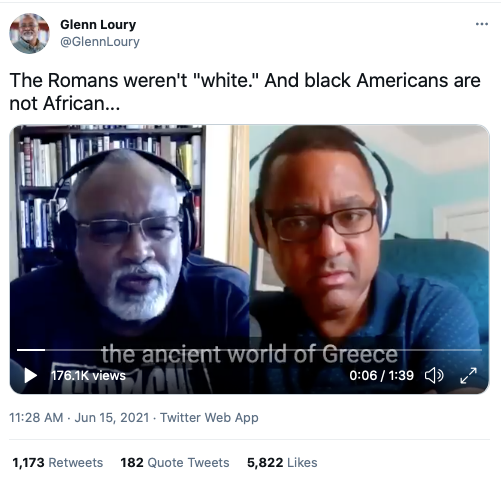Greg Lukianoff Discusses an “Eternally Radical Idea”
People utter the phrase "free speech" all the time, but it is a rare bird who appreciates how rare and precious this idea is, historically speaking. Here's an excerpt from an article by Greg Lukianoff:
What do you call an idea that has a clear track record of promoting innovation, human flourishing, prosperity, and progress, but is nonetheless rejected by every generation?I would call that idea radical. And because it’s always so staunchly opposed, I would call that idea “eternally radical.”
So what is the Eternally Radical Idea? It is freedom of speech.
The unfettered right to state your opinion is extremely rare in human history. Your right to promote reform, contradict prevailing orthodoxies, or engage in artistic and personal expression is even rarer.
Indeed, human beings are natural born censors with a strong drive toward community conformity. Throughout the millennia, how have we typically handled dissenters? Often it’s ostracization or banishment. At other times, it’s arrest, torture, beheadings, burning at the stake, crucifixion, or drinking hemlock.
“But Where is Critical Race Theory Actually Being Taught?”
When I deny that the current versions of CRT are related to the Civil Rights Movement, I assert this because:
A) CRT and antiracism are obsessed with dividing people into "colors" and treating them differently on the basis of "color."
B) The Platform of CRT and antiracism have no meaningful mechanism for improving the lives of the poor minority populations they pretend to serve.
C) CRT and antiracism excel at denying data relating to their mission (including police statistics and economic facts, such as the fact that 60% of Americans who identify as "black" are middle class or above).
D) CRT and antiracism advocates do not extol the teachings of Martin Luther King. In fact, King's teachings are barely mentioned in training materials.
There are other difference too, but this is a sampling based upon some of the articles I've written recently.
Increasing numbers of people are starting to understand that CRT and "antiracism" have no meaning connection to do with the traditional Civil Rights Movement, but now they are increasingly denying that CRT and "antiracism" are being taught in schools. I see this as motivated reasoning based on the fact that most of these people (the ones I know) are only exposed to left-leaning legacy media. These people admit of only a few outliers and deny that CRT or antiracism is a significant problem in the U.S. I disagree, based on these resources:
The recent case of Dana stangel-Plowe, former teacher at a school in Englewood.
The recent case of Paul Rossi.
The observations of Andrew Gutmann, a former parent at Brearly School.
Christopher Rufo's reports based upon leaked training materials at numerous schools.
Chloe Valdary teaches a good-hearted program to diminish bigotry she compares to the CRT programs of which she is knowledgable.
Numerous reports by Parents Defending Education.
Numerous reports of attempted cancellation based on CRT here.
Reports at businesses by Counterweight.
Many more reports here, by Princetonians for Free Speech.
I have also been personally contacted by approximately a dozen people who work in academia who are afraid to speech honestly on issues because CRT permeates the campus
More reports here (Stanford) and here (Rutgers).
John McWhorter's receipt of numerous complaints (see the comments) here.
Another recent resource is Christopher Rufo's "Critical Race Theory Briefing Book."
There are numerous other reports, more of them surfacing every week. I will try to update this list periodically.
Lack of Appreciation for Progress
I have repeatedly read comments such as "Racism has never been worse than it is today!" Really? It's worse today than it was in 1840? In 1953? In 1960? Comments like these constitute ignorance expressing itself. History is not making shit up. Let's get our facts correct before opining.
The Political Left’s Problem is not Joe Rogan. It’s in the Mirror.
Krystal Ball's commentary is spot. The Left constantly ignores Joe Rogan's many left-leaning positions and it's to their own detriment. One problem is that Joe is too damned independent and doesn't pass the left's political purity tests. Krystal also suggests a time-of-genesis and a motive for this dysfunction: Joe's words in support of Bernie Sanders during the primary.
- Go to the previous page
- 1
- …
- 52
- 53
- 54
- 55
- 56
- 57
- 58
- …
- 451
- Go to the next page


